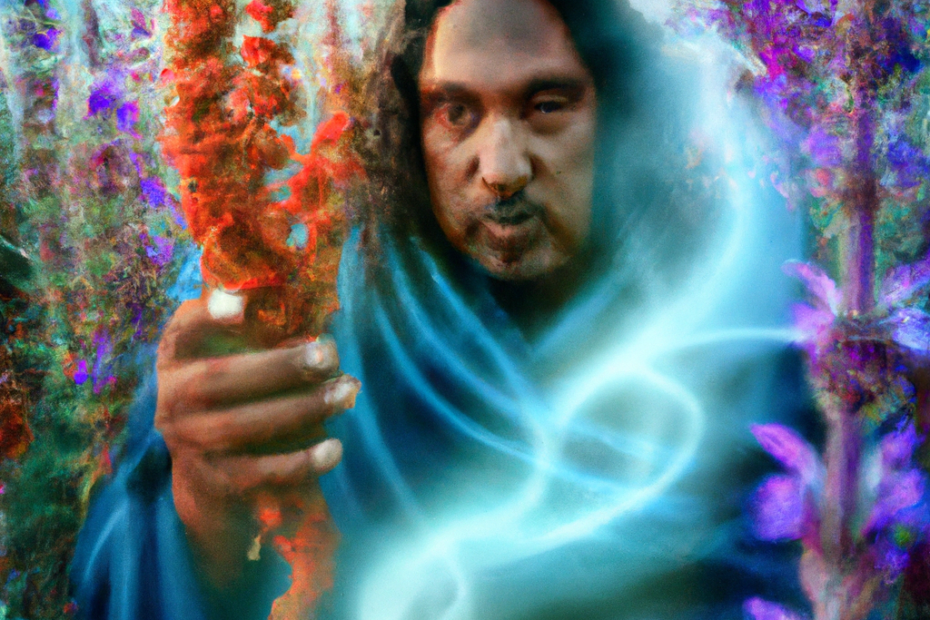Salvia, also known as Salvia Divinorum, is a powerful psychoactive plant that has gained popularity in recent years. With its potent effects and potential legal implications, many individuals in Delaware are seeking clarity on the laws and risks associated with its use.
In this comprehensive article, we will delve into the nature of Salvia, its effects – both short-term and long-term, and the legal landscape surrounding its possession and use in Delaware. We will explore the penalties for possessing and using Salvia in the state, as well as the potential for legal medical use. We will discuss the alternatives to Salvia that are legal and natural, along with the associated risks, both health-related and legal, of using Salvia in Delaware.
This article aims to provide a thorough understanding of Salvia and its legal status in Delaware, ensuring that readers are well-informed and equipped to make educated decisions regarding its use.
What Is Salvia?
Salvia, commonly known as sage, is a psychoactive plant that belongs to the mint family and is native to central and southern Mexico.
It is characterized by its fragrant leaves and colorful flowers, with over 900 species found worldwide. Salvia has been traditionally used in indigenous cultures for its medicinal and spiritual properties, often being brewed into teas or burned as incense. Its cultivation is relatively easy, as it thrives in well-drained soil and requires plenty of sunlight.
When consumed, Salvia induces intense psychoactive effects, such as altered perception, mood enhancement, and powerful hallucinations that have been integral to shamanic rituals and spiritual practices.
What Are the Effects of Salvia?
The effects of Salvia consumption can range from mild perceptual changes to intense hallucinogenic experiences, influencing sensory perceptions and cognitive functions.
What Are the Short-Term Effects of Salvia?
The short-term effects of Salvia use may include altered perception, distorted spatial awareness, and transient changes in sensory experiences, leading to an altered state of consciousness.
Users often report vivid perceptual distortions, such as visual and auditory hallucinations, along with intense sensory changes. These alterations in cognitive functions can manifest as time dilation, feeling disconnected from reality, and a heightened sense of introspection.
These effects typically peak shortly after ingestion and gradually fade, returning the individual to their normal state within a relatively short duration.
What Are the Long-Term Effects of Salvia?
Long-term use of Salvia may potentially impact cognitive functions, psychological well-being, and overall mental health, warranting comprehensive consideration of its sustained effects on individuals.
Studies have suggested a correlation between prolonged Salvia consumption and cognitive decline, including impairments in memory, attention, and executive functions. Individuals with a history of persistent Salvia use may be more susceptible to heightened anxiety, depression, and mood disturbances, thus highlighting the need for thorough evaluation of its lasting influence on mental well-being.
These long-term cognitive and psychological effects raise pertinent concerns about the potential risks associated with sustained Salvia consumption.
Is Salvia Legal in Delaware?
The legal status of Salvia in Delaware is subject to specific regulations and legislation that govern its permissibility, sale, possession, and usage within the state.
In Delaware, Salvia is classified as a Schedule I controlled substance, which means it is illegal to manufacture, distribute, possess, or use it for recreational purposes. The state’s legislative measures also outline penalties for violations of these regulations, including fines and potential incarceration.
Delaware has incorporated regulatory restrictions to monitor and enforce the legal framework surrounding Salvia, aiming to mitigate potential public health and safety concerns.
What Are the Laws Surrounding Salvia in Delaware?
The laws governing Salvia in Delaware encompass specific regulations that address its classification, distribution, and enforcement measures, aiming to control its availability and usage.
These regulations are in line with the state’s firm stance on controlled substances, as outlined in the Delaware Controlled Substances Act. Enforcement measures, including penalties for illegal distribution and possession, play a crucial role in deterring unauthorized usage.
Distributors are required to adhere to strict restrictions, obtaining proper licenses and complying with state laws to ensure lawful distribution. The legislative framework is designed to strike a balance between regulating Salvia and addressing public health concerns associated with its usage.”
Is Salvia Possession and Use a Crime in Delaware?
The possession and use of Salvia in Delaware may be subject to criminal penalties and legal repercussions, as the state maintains strict regulations regarding its permissibility and lawful consumption.
Those found to be in possession of Salvia in Delaware can face serious consequences, including fines, imprisonment, and a permanent criminal record. Law enforcement in the state actively enforces these laws, and individuals caught with Salvia may be prosecuted to the fullest extent.
It is crucial for individuals to understand the gravity of possessing and using Salvia in Delaware, as the legal ramifications can have long-lasting effects on their lives. Therefore, it is essential to adhere to the legal restrictions and avoid engaging in any activities involving Salvia in the state.
What Are the Penalties for Possessing and Using Salvia in Delaware?
The penalties for possessing and using Salvia in Delaware vary based on the nature and extent of the violation, encompassing legal sanctions, enforcement actions, and potential repercussions for non-compliance with regulatory statutes.
For instance, simple possession of Salvia in Delaware is considered a misdemeanor, punishable by fines and potential imprisonment. If the possession is coupled with intention to distribute or sell, it escalates to a felony, carrying more severe penalties. Law enforcement agencies in Delaware are vigilant in enforcing these laws, conducting raids and investigations to curb illegal activities related to Salvia. It is crucial for individuals to be aware of the legal implications and ensure compliance with the state’s regulations to avoid facing the grave consequences of Salvia possession and use.
Is There a Possibility for Legal Medical Use of Salvia in Delaware?
The potential for legal medical use of Salvia in Delaware is subject to legislative considerations and regulatory assessments that dictate its permissibility for therapeutic applications and controlled medical research.
As many states are reevaluating their stance on the medical uses of controlled substances, Delaware is no exception. The legislative evaluations on Salvia’s medical usage will weigh the potential benefits against any perceived risks, while the regulatory framework will aim to ensure that any medical research involving this substance adheres to strict guidelines. These considerations are crucial in shaping the future landscape of medical marijuana, and it’s imperative to strike a balance between accessibility and safety for patients in need of alternative treatment options.
What Are the Alternatives to Salvia in Delaware?
In Delaware, individuals seeking alternatives to Salvia may explore legal substitutes and natural options that offer comparable experiences or therapeutic benefits within the permissible boundaries of state regulations.
Legal alternatives such as kratom and kava have gained popularity among those seeking similar experiences to Salvia, providing relaxation and stress relief. Natural substitutes like passionflower and valerian root have been widely used for their calming effects, offering potential therapeutic options for individuals looking to avoid the psychoactive properties of Salvia.
These alternatives, when used responsibly and in accordance with state laws, can provide individuals with a range of options to explore for their wellness needs.
What Are the Legal Alternatives to Salvia in Delaware?
Legal alternatives to Salvia in Delaware encompass a range of permissible substances and botanical products that provide similar effects or therapeutic benefits while complying with state regulations and legal standards.
These legal substitutes may include specific herbal blends, such as blue lotus, kratom, and kava, which are widely available and approved for usage in accordance with Delaware’s laws. Botanical products like damiana, mullein, and passionflower are recognized as permissible alternatives to Salvia and are subject to state regulations to ensure their compliance with legal standards.
Consumers seeking alternatives to Salvia can explore these botanical options that offer similar effects while abiding by the established legal framework in Delaware.
What Are the Natural Alternatives to Salvia in Delaware?
Natural alternatives to Salvia in Delaware encompass various plant-based and herbal options that offer alternative psychoactive or therapeutic experiences within the boundaries of legal permissibility and botanical usage.
These alternatives may include herbs such as damiana, passionflower, or blue lotus, which are known for their calming and mood-enhancing properties. Delaware residents may explore the use of kratom, kava, or wild dagga as alternative options for relaxation and stress relief.
It’s important to note that while these alternatives are legal and commonly used in botanical practices, individuals should always consult with a healthcare professional before incorporating them into their wellness routines.
What Are the Risks of Using Salvia in Delaware?
Using Salvia in Delaware poses potential health and legal risks that individuals should consider, encompassing both physiological and legal implications associated with its consumption and possession within the state.
It is important to be aware that the use of Salvia has been linked to concerns such as increased heart rate, disorientation, and hallucinations, which could result in adverse effects on a person’s well-being. In addition to the health risks, individuals should also be mindful of the legal consequences, as the possession and consumption of Salvia in Delaware may lead to legal ramifications, given the state’s regulations and restrictions on its use.
Therefore, anyone considering the use of Salvia should weigh the potential health hazards and legal repercussions before proceeding.
What Are the Health Risks of Salvia Use in Delaware?
The health risks associated with Salvia use in Delaware encompass potential physiological and psychological effects, reflecting the psychoactive nature of the substance and its impact on user well-being and cognitive functions.
Physiologically, Salvia consumption can lead to increased heart rate, elevated blood pressure, and impaired motor function, posing immediate dangers to users. The psychological impact of Salvia use may include hallucinations, delusions, and disorientation, which can result in cognitive distortions and impaired decision-making abilities. These effects can significantly compromise an individual’s overall health and well-being, highlighting the urgent need for awareness and prevention measures surrounding the consumption of Salvia in Delaware.
What Are the Legal Risks of Salvia Use in Delaware?
The legal risks associated with Salvia use in Delaware pertain to potential enforcement actions, criminal penalties, and legal repercussions stemming from its possession, distribution, or usage within the state’s jurisdiction.
State laws in Delaware classify Salvia as a Schedule I controlled substance, imposing penalties for its possession, sale, or distribution. Individuals found in possession of Salvia can face misdemeanor charges, fines, and even imprisonment. Distributing or selling Salvia can result in felony charges, leading to severe legal repercussions. Law enforcement agencies in Delaware actively enforce these laws, and individuals engaging in the illicit use of Salvia risk significant legal consequences.
Frequently Asked Questions
Is Salvia legal in Delaware?
1. What is Salvia and why is it a topic of discussion regarding its legality in Delaware?
Salvia, also known as Salvia divinorum, is a plant with psychoactive properties that has been used for centuries in spiritual and medicinal practices. Recently, it has gained attention for its potential recreational use, leading to discussions about its legality in various states, including Delaware.
2. Is Salvia legal for recreational use in Delaware?
No, Salvia is not legal for recreational use in Delaware. It is classified as a Schedule I substance, meaning it is considered to have a high potential for abuse and has no accepted medical use.
3. Can Salvia be used for medicinal purposes in Delaware?
No, Salvia is not recognized as a medication by the Food and Drug Administration (FDA) and is not approved for medical use in Delaware. Its potential therapeutic effects have not been thoroughly studied and it is not prescribed by doctors.
4. Are there any exceptions to the legality of Salvia in Delaware?
Yes, there is one exception. Individuals can possess and use Salvia for research purposes if they have obtained a license from the Delaware Department of Health and Social Services. However, this exception does not apply to recreational or medicinal use.
5. What are the penalties for possessing or using Salvia in Delaware?
Possessing or using Salvia for recreational purposes is considered a misdemeanor in Delaware and can result in fines and/or imprisonment. It is also illegal to possess or sell Salvia to minors.
6. Is there any movement to change the legality of Salvia in Delaware?
There have been efforts to change the legality of Salvia in Delaware, but no significant progress has been made. Some states have implemented laws to regulate its use, but as of now, Salvia remains illegal for recreational and medicinal use in Delaware.
John Marston, a seasoned writer since 2009, has penned hundreds of articles on Salvia Divinorum across the web. As a full-time writer at a prominent online salvia retailer, he continues to contribute valuable insights, combining expertise and passion to unravel the diverse facets of Salvia Divinorum. Beyond his writing, John serves as a budtender in the cannabis industry.




